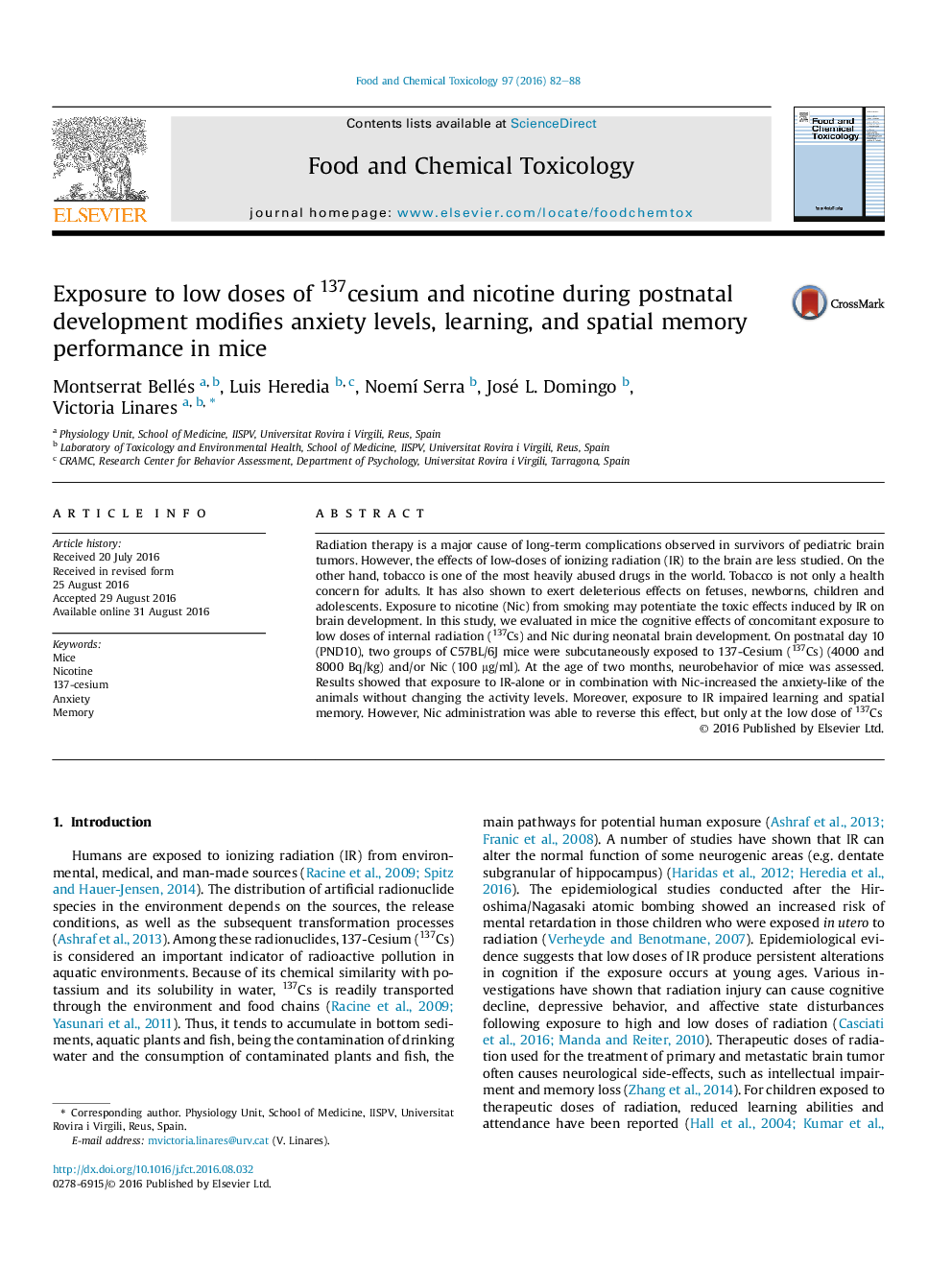| Article ID | Journal | Published Year | Pages | File Type |
|---|---|---|---|---|
| 2584826 | Food and Chemical Toxicology | 2016 | 7 Pages |
•Radiation therapy causes complications in survivors of pediatric brain tumors.•Ionizing Radiation impairs learning and spatial memory.•Nicotine may potentiate the toxic effects induced by ionizing radiation on brain development.•Radiation alone or with Nicotine increases the anxiety, but not the activity levels.•Nicotine reverses brain impairment induced by the lower doses of radiation.
Radiation therapy is a major cause of long-term complications observed in survivors of pediatric brain tumors. However, the effects of low-doses of ionizing radiation (IR) to the brain are less studied. On the other hand, tobacco is one of the most heavily abused drugs in the world. Tobacco is not only a health concern for adults. It has also shown to exert deleterious effects on fetuses, newborns, children and adolescents. Exposure to nicotine (Nic) from smoking may potentiate the toxic effects induced by IR on brain development. In this study, we evaluated in mice the cognitive effects of concomitant exposure to low doses of internal radiation (137Cs) and Nic during neonatal brain development. On postnatal day 10 (PND10), two groups of C57BL/6J mice were subcutaneously exposed to 137-Cesium (137Cs) (4000 and 8000 Bq/kg) and/or Nic (100 μg/ml). At the age of two months, neurobehavior of mice was assessed. Results showed that exposure to IR-alone or in combination with Nic-increased the anxiety-like of the animals without changing the activity levels. Moreover, exposure to IR impaired learning and spatial memory. However, Nic administration was able to reverse this effect, but only at the low dose of 137Cs
